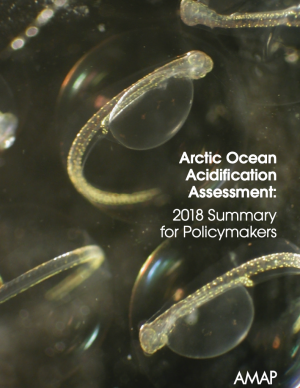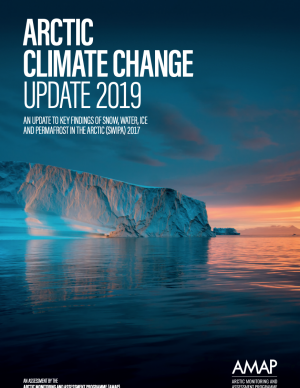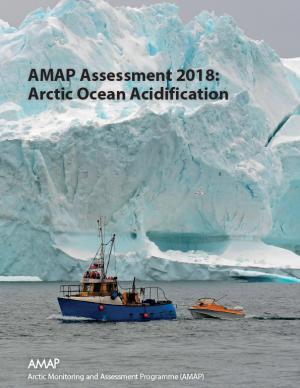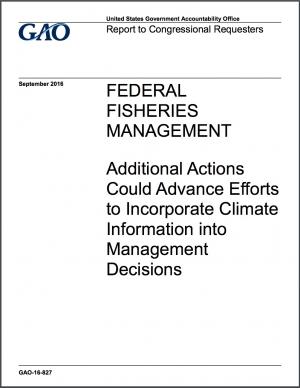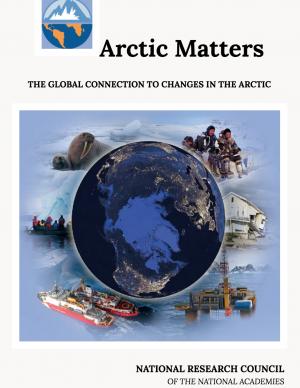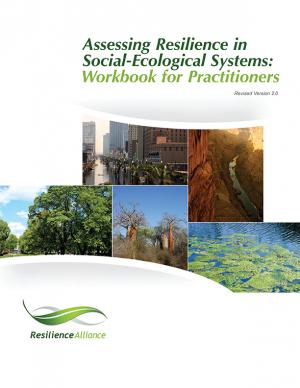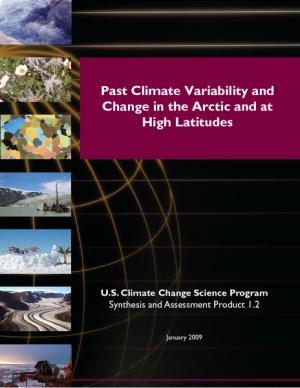Access a range of climate-related reports issued by government agencies and scientific organizations. Browse the reports listed below, or filter by scope, content, or focus in the boxes above. To expand your results, click the Clear Filters link.
This Summary for Policymakers summarizes the findings of the AMAP Assessment 2018: Arctic Ocean Acidification report released in October 2018. It offers a review of the latest science relating to regional ocean acidification, the biological responses to it, an overview of case studies and their associated findings, and recommendations for the Arctic Council.
Drawing and building on the findings of the Arctic Monitoring and Assessment Programme's (AMAP) 2017 Snow, Water, Ice and Permafrost in the Arctic (SWIPA) assessment, this document provides updated observations, information from other recent assessments, and conclusions from the latest reviews of Arctic trends and indicators. The pace of change in the Arctic is so rapid that new records are being set annually, and each additional year of data strengthens the already compelling evidence of a rapidly changing Arctic.
The continuing acidification of the Arctic Ocean is projected to have significant ecological and socioeconomic impacts over coming decades, with consequences both for local communities and globally. This is the overarching finding of the 2018 Arctic Ocean Acidification Assessment, presented at the 2018 Arctic Biodiversity Congress. The assessment, conducted by the Arctic Monitoring and Assessment Programme (AMAP) of the Arctic Council, updates a 2013 assessment and presents the chemical, biological, and socioeconomic impacts of ocean acidification, which is driven primarily by global greenhouse gas emissions.
As climate changes and ocean temperatures rise, the abundance, distribution, and life cycles of fish in federally managed ocean fisheries may change too. Federal agencies managing ocean fisheries have limited information to determine exactly how climate change might harm specific fish populations, and may not always understand the potential effects. To better manage climate-related risks, the report recommends (1) the development of guidance on how to incorporate climate information into the fisheries management process, and (2) finalizing Regional Action Plans for implementing the NOAA Fisheries Climate Science Strategy that incorporate performance measures for tracking achievement of the Strategy’s Objectives.
This report draws upon a large collection of peer-reviewed National Research Council reports and other national and international reports to provide a brief, reader-friendly primer on the complex ways in which the changes currently affecting the Arctic and its diverse people, resources, and environment can—in turn—affect the entire globe. Topics in the booklet include how climate changes currently underway in the Arctic are a driver for global sea level rise, new prospects for natural resource extraction, and rippling effects through the world's weather, climate, food supply, and economy.
Climate change is making the Arctic a greener, warmer, and increasingly accessible place for economic opportunity. However, climate impacts such as sea ice loss and rising ocean acidification are straining coastal community resilience and sound resource stewardship. NOAA's Arctic Action Plan outlines ways for scientists and stakeholders to share their progress regarding this vast, valuable, and vulnerable region.
The workbook for practitioners uses strategic questions and activities to assess resilience in social-ecological systems. The approach involves constructing a conceptual model of a system that includes resources, stakeholders, and institutions, and identifies potential thresholds between alternative systems states in order to provide insight into factors that build or erode a system's resilience. A resilience assessment can help with developing strategies for coping with uncertainty and change.
Average temperatures in the Arctic have increased at almost twice the rate of the planet as a whole. Such temperature changes have been accompanied by shrinking sea ice, melting ice and permafrost on land, and widespread impacts to land and ocean ecosystems. This Synthesis and Assessment Product, developed as part of the U.S. Climate Change Science Program, offers recommendations for future research in this area.

